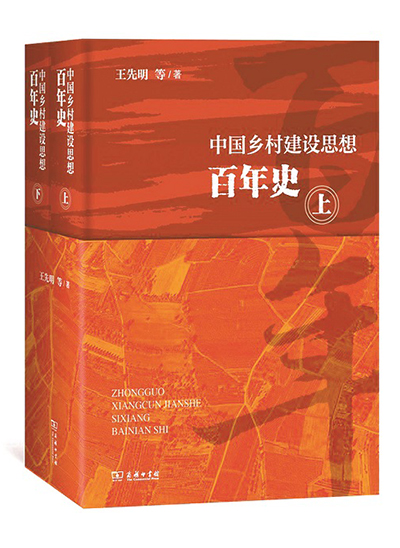China’s rural construction thought since the 20th century

The Intellectual History of China’s Rural Construction over a Century
The Intellectual History of China’s Rural Construction over a Century, authored by Wang Xianming, a professor from the Faculty of History at Nankai University, unfolds the history of rural construction theory and practice since the 20th century.
The book conducts intensive analysis on how such historical figures as Sun Yat-sen, Liang Shuming, and Y. C. James Yen understood, expressed, and practiced the historical proposition of rural construction. Then, it narrates the efforts made by the CPC in constructing rural areas in modern and contemporary times. Especially under the new normal of economic development after the 18th CPC National Congress in 2012, the characteristics of the new era are embodied amid transcendent development. Through the rural vitalization strategy, the CPC has fundamentally solved the long-standing problems plaguing agriculture, rural areas, and rural people, completing the building of a moderately prosperous society in all respects. Whether from the perspective of thought evolution or practical exploration, the intellectual appeal and discourse mode of “building new socialist countryside” traces back to a very early stage and runs through the century-old historical process.
Previous studies were mostly confined to case analyses, without much attention to the historical context or internal correlations in the development and evolution of rural construction thought over the past century. There is still a lack of in-depth research on the comparative study of different rural construction ideas in different historical stages in the 20th century, without offering sufficient rational historical reference.
Overall, the book longitudinally exhibits China’s centenary history around the formation, development, evolution, and qualitative leap of rural construction ideas. In a horizontal comparison, it reveals the deep interconnections during a specific historical period between different rural construction thoughts, theories, and schools, unveiling an era landscape with respective ideological characteristics, mutual argumentation, and interactions. In doing so, Wang tries to give a more comprehensive, systematic, and dynamic account.
The author redefines rural construction and its thought from the perspective of “China’s century-old rural construction,” creating a research object system combining historical understanding. Thus, the research scope covers the rural construction thought of Sun Yat-sen and other figures since the early 20th century; that of the Nanjing KMT Government higher and local officials; the intellectual purport of rural development policy and institutional design by the Nanjing KMT Government; “rural construction” from the 1920s to 1940s, primarily featuring social reform led by Liang Shuming, Y. C. James Yen, and others; and the rural construction carried out by the CPC in the new-democratic revolution and in the socialist revolution and construction.
Jiao Yu’nan is from the Party School of the Central Committee of CPC (National Academy of Governance).
Edited by YANG LANLAN
